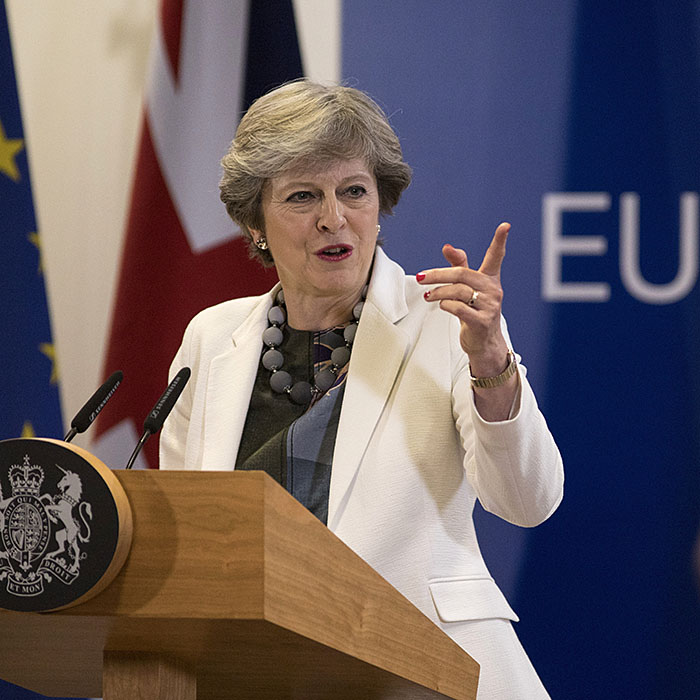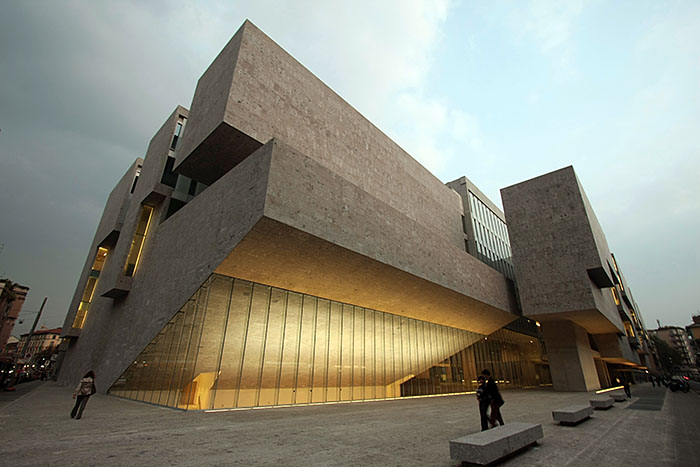Why applications for European business schools are on the rise
Melinda Aulie left Europe aged 15 when her American parents moved from Madrid back to the family home in Chicago.
She went on to study at Westmont College, Santa Barbara, for her bachelors degree in economics and business, and worked as a corporate account manager at Bloomberg in San Francisco.
Now aged 28, Aulie is back on European soil to study for an MBA. She applied to Northwestern University’s Kellogg School of Management in Illinois, in part because it was near her family, but in the end she chose HEC Paris because she felt that it would be a more cosmopolitan experience.
“There is plenty of diversity in US business schools but here in Europe the cities where you live are diverse, too,” she says. “I have a lofty ambition to lead a global business and to do that I need this kind of global dynamic.”
European schools appear to be enjoying a boom in demand at the expense of their peers in the US, with MBA students attracted both by the prospect of studying alongside a greater mix of nationalities and by shorter courses — in some cases half the standard two-year American degree.

One-third of US-based MBA programmes received more applications in 2017 than in the previous year, according to the Global Management Admission Council, which administers the GMAT entrance exam. In Europe, it was two-thirds of schools.
The growth in the European MBA market is driven by foreign applications, with more than 90 per cent of candidates this year coming from outside the schools’ home countries, says GMAC.
Aulie will graduate at the end of this year after 16 months of study, about a third faster than she would have done had she remained in the US.
“Sixteen months is the perfect amount of time,” she says, noting that it was long enough for her to get to know many of the 120 students in her cohort well, while not spending too long out of the workplace.

“So much of studying for an MBA at HEC was about building my European network. Other courses, like the 12-month programme at Insead, seemed too short to do this.”
However, there are concerns for Europe’s top business schools, too. The biggest risk for Europe is the economy, according to Soumitra Dutta, board chair at the Association to Advance Collegiate Schools of Business, the business school accreditation body.
“When the economy doesn’t do well, business schools suffer,” he says, claiming that poor job prospects may deter European students from taking on the cost of full-time MBA study. Many European countries have struggled to increase their GDP in recent years and austerity policies have taken their toll on education funding, affecting research and the ability to attract the best staff, according to David Asch, a director at the European Foundation for Management Development, another accreditation body. “It is quite challenging,” he says.

The other big concern about Europe is political uncertainty in some regions where business education has been strongest; this includes the UK’s vote in 2016 to leave the EU and this year’s crisis in Spain sparked by an independence vote in Catalonia.
Asch says business schools are shielded from local political unrest because they are teaching students largely from outside the area, who are privileged enough to be able to move away after graduation.
“Business schools do not rely on the local economy in the same way that businesses do,” Asch says. “If they need extra funding, for instance, they can go to companies operating on a global, not a regional level, or to former students now working all over the world.”
The effect on MBA courses in locations where there have been separatist votes is uncertain. Brexit has secured what is seen as a short-term benefit for many UK business schools as sterling fell significantly against the euro and the US dollar, making courses cheaper.
Applications were up across the range of masters degree courses offered by UK business schools this year, according to the Chartered Association of Business Schools, the body that represents UK MBA providers — something it attributes to the exchange rate boost.
It is students at an earlier stage in their education who most worry business schools. CABS research found that 40 per cent of schools suffered a fall in applications from the EU for undergraduate courses. One in five schools reported a rise in EU applicants not turning up for undergraduate business degree courses in September.
There is also uncertainty about retaining key staff. A quarter of schools in the CABS research said they were finding it harder to recruit EU staff and one in six had seen some employees leave since the Brexit vote (see chart).
Northern Italy, where 90 per cent of voters in the Lombardy and Veneto regions opted in October for greater autonomy from Rome, is home to Milan’s SDA Bocconi School of Management, a top 10 school in the Financial Times global MBA ranking.
Gianmario Verona, Bocconi rector, admits to concern about the economic effect but notes that applications for his school’s MBA are higher this year, despite the devolution debate. Applicants put greater weight on a course’s reputation and the strength of its business links globally than local politics, he says.

“The quality of the education you provide matters most,” he says, adding that in the US, it is second-tier schools that are suffering from declining demand for courses while applications continue to rise for the highest-ranked US institutions, such as Harvard Business School and Stanford Graduate School of Business.
The economic situation in Europe will be important to MBA students if they cannot find a job, with unemployment high in countries such as France and Spain.
Aulie hopes to work in London or Geneva after graduation and admits that Brexit may dictate the Swiss option.
Business school students are pragmatic, she says, adding that if she cannot achieve her goal of working in Europe, she could work elsewhere. “I am a global citizen,” she says.
Comments